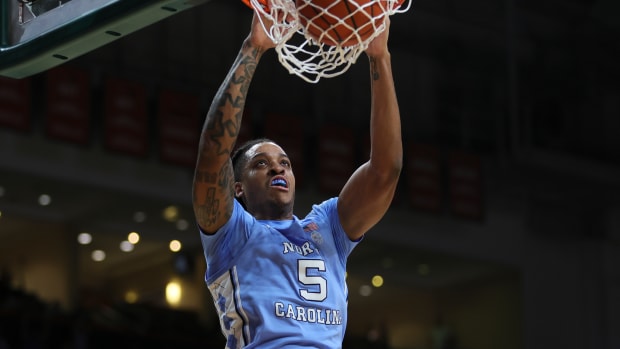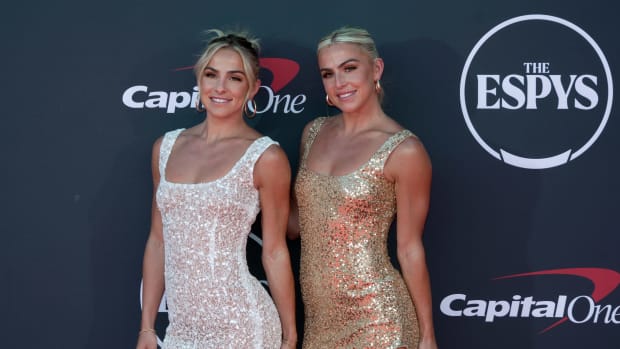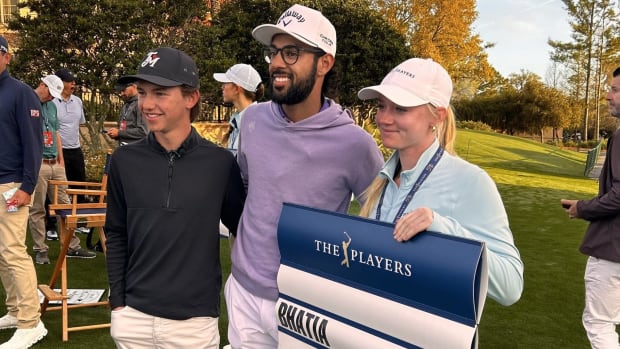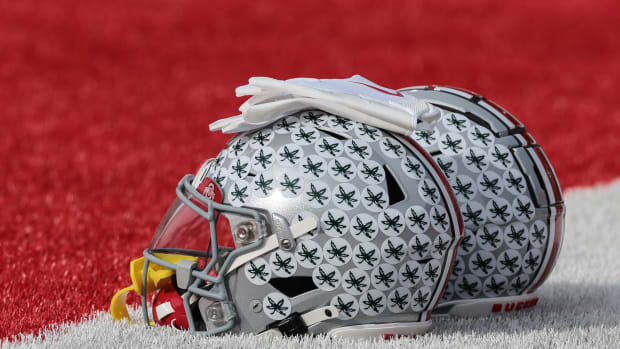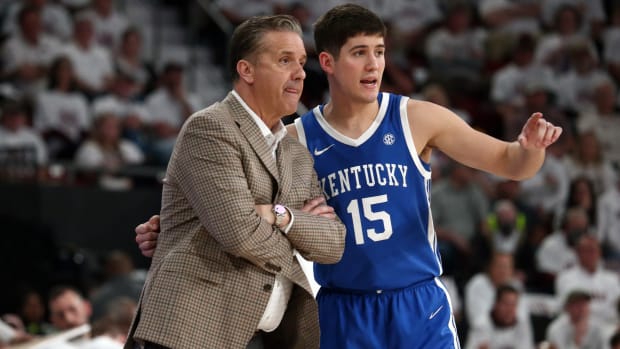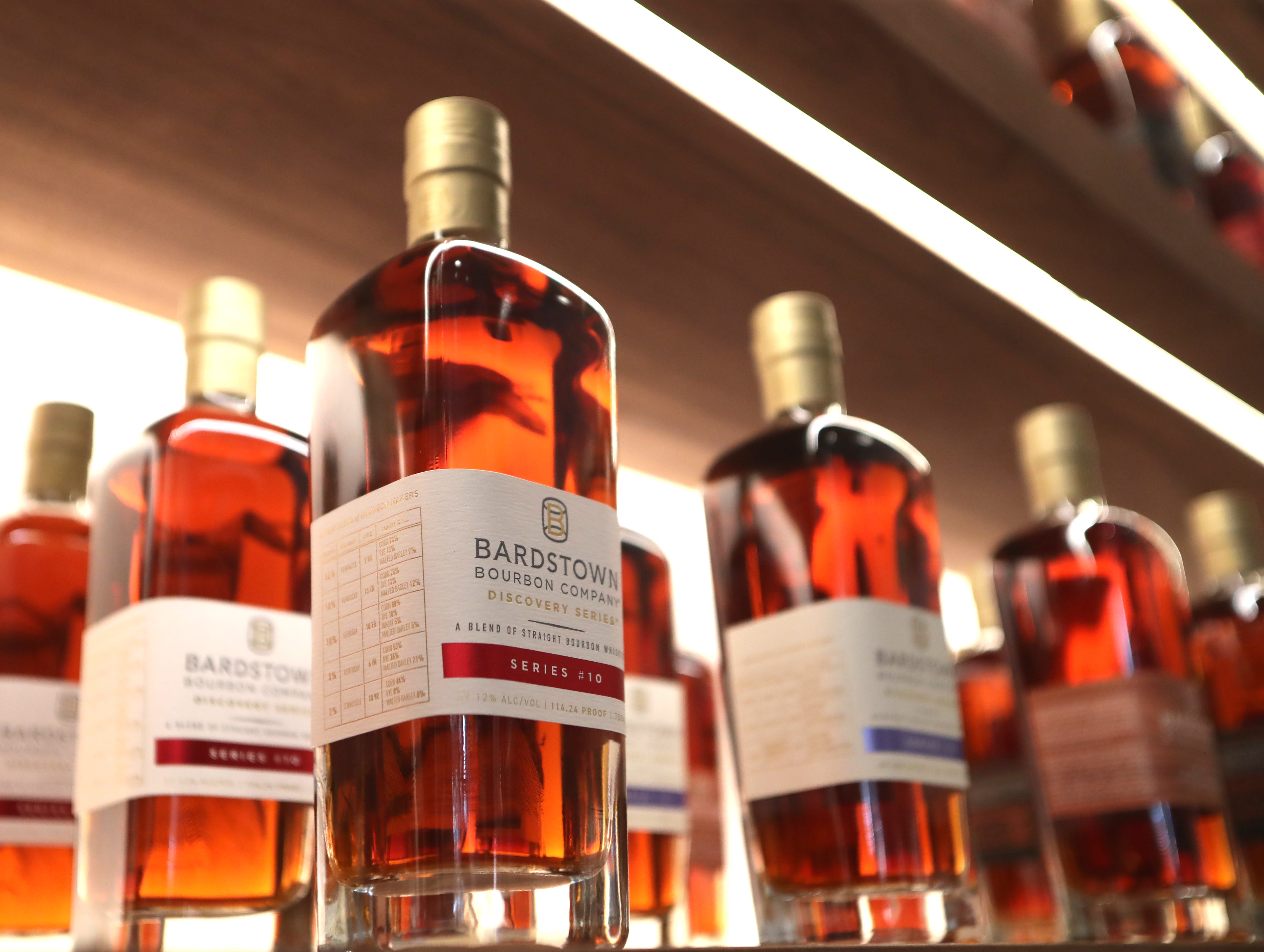
Investigating NIL Collective's Alcohol Loophole
By way of the Happy Valley Collective, Penn State has become the latest school to jump on the newest trend taking over NIL collectives: offering novelty alcohol products to fans in exchange for NIL kickbacks.
By teaming up with Pennsylvania Pure Distilleries in Glenshaw, Pennsylvania, Happy Valley Collective has created Happy Valley Vodka, a 750ml, 80-proof potato vodka now on presale for $26.95.
This product is the same recipe as the company’s flagship product, Boyd and Blair Vodka; the only difference is the rebranding of the bottle, which includes a blue and white Penn State colorway.
Happy Valley Vodka has yet to disclose how much money from profits/revenue/sales will be given to the collective.
Swarm Golden Ale, a similar product at the University of Iowa, has an agreement where 20% of revenue from sales is donated to the Iowa Swarm collective. Created through a partnership between the Iowa Swarm collective and Exile Brewing, Swarm Golden Ale has been wildly successful and incredibly transparent.
In its first two months of sales, Swarm Golden Ale raised $60,000 for Hawkeye athletes.
Many collectives have already inked partnerships with alcohol companies, predominately in the craft beer space.
In March, Boise State’s Horseshoe Collective was the first to implement the idea in its partnership to create the Horseshoe Golden Ale.
Schools with collectives that have since jumped on the beer bandwagon include Iowa, Northern Iowa, Iowa State, Indiana, Cincinnati, West Virginia, and South Carolina.
In this beer-driven market, Happy Valley Vodka, is still not the first NIL collective liquor partnership. Collectives at both the University of Tennessee and the University of Alabama have partnered with distilleries to create similar vodka products.
Football and beer are a match made in heaven; however, there is no denying that alcohol distributors are using these partnerships to get a footing in the NIL economy, which they have long been denied.
The majority of states have implemented language within their respective NIL legislation that prevents student-athletes from engaging with companies in morally scrupulous industries. Inherently, student-athletes who engage in brand partnerships impute the university’s goodwill to the endorsement, even if there are no university trademarks, insignia, or mentions of the school in the advertisement.
In an effort to protect the image and reputation of the universities, states have opted to restrict some freedom of contract from student-athletes.
It isn’t hard to imagine the fallout that could occur if a high-profile athlete at a school like Liberty signed a NIL deal with a contraceptive manufacturer.
In the instant case of Happy Valley Vodka, Pennsylvania NIL law articulates its morality clause as:
§ 3706 (d):
Prohibition.--A college student athlete may not earn compensation as a result of the use of the college student athlete's name, image or likeness in connection with a person, company or organization related to or associated with the development, production, distribution, wholesaling or retailing of any of the following:
(1) Adult entertainment products and services.
(2) Alcohol products.
(3) Casinos and gambling, including sports betting, the lottery and betting in connection with video games, online games and mobile devices.
(4) Tobacco and electronic smoking products and devices.
(5) Prescription pharmaceuticals.
(6) A controlled dangerous substance.
Collectives are not subject to the same regulations as student-athletes when entering into partnership agreements. The asymmetry between athletes and collectives opens the door for companies previously shut out from marketing products via NIL campaigns to partner with collectives and benefit from NIL marketing.
While players can not advertise these products in states with morality restrictions, the ultimate goal of these companies can still be achieved through partnerships with NIL collectives –– leveraging the athletic programs’ goodwill and fans' desire to support NIL.
This trend is troublesome as collectives are separate entities from the schools they partner with and, therefore, have the power to enter into agreements with companies that do not reflect the values of the schools they associate with.
NIL collectives offer brands outlawed from entering deals with student-athletes (in jurisdictions with morality clauses) the ability to circumvent legislative intent that aims to protect the reputation of universities from morally scrupulous NIL endorsements.
Alcohol sales have become enmeshed within the collegiate athletic tradition; 80% of Power Five schools sell alcohol at college football games.
It is unlikely that partnerships of this nature will raise any moral red flags; however, if this partnership structuring is extended to other morally scrupulous industries, it could quickly become problematic.
While it is yet to be seen, if the use of this loophole is extended to sports gambling companies or companies that offer products on the NCAA banned substances list, a partnership with a NIL collective –– which by its nature is directly related to both a university and a college athletic department –– would undoubtedly raise public policy concerns.



